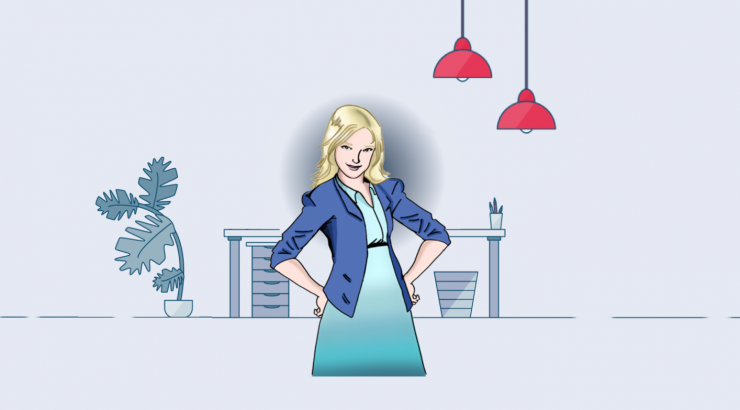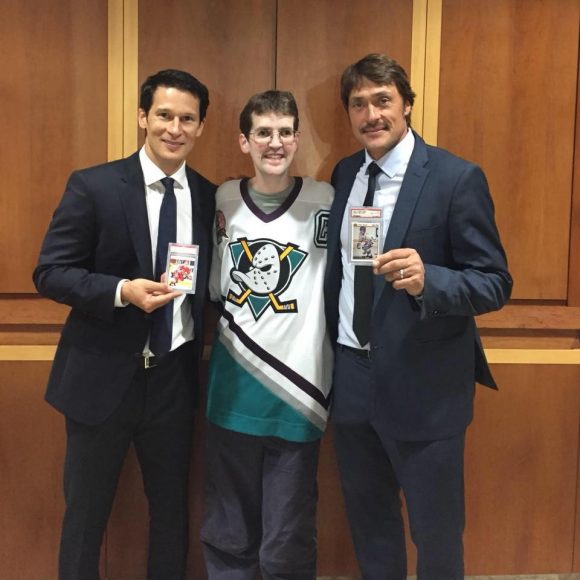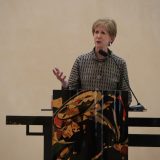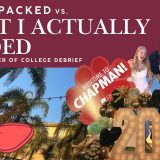Career Corner Wilkinson Alumni Combines Degree and Passion to Make His Dream into a Career
December 17, 2020

Erin Berthon, MA Career Advisor, Wilkinson College of Arts, Humanities, and Social Sciences, at Chapman University
I recently came across an article, The Greatest Collection, highlighting Wilkinson College alumnus Jeffrey Griffith (’11, BA History, BS Business Administration) and I became instantly intrigued by his story. I wanted to know more about how his college degree, along with his hobby as a hockey card enthusiast, led him to be the successful author and businessman he is today.
Jeffrey pursued both a Master of Arts and a Doctorate in History after graduating from Chapman. Along the way, he built beneficial relationships within the hockey community, which has led him to some tremendous opportunities, such as publishing an official Hockey Hall of Fame book, The Greatest Collection: Legends and Lore Behind Hockey’s Treasures.
We have so many students trying to integrate different interests and talking with Jeffrey made me want to share his story and any advice he can offer.
Erin Berthon: Is there anything you wished you could go back and do differently?
Jeffrey Griffith: While I cannot pinpoint one specific thing that I would like to change, one thing I realized as I continued with my masters at Cal State Fullerton and my doctorate at Claremont Graduate University is how Chapman – to me – is the ideal size. Classes are large enough to hear and connect with numerous studies but still small enough to directly interact with professors who can learn about individual research interests. To me, those relationships are what molded me for both my future academic efforts and career.
EB: How did Chapman University and Wilkinson College prepare you for your post-undergraduate life?
JG: Wilkinson instilled in me the skills to critically assess issues, topics, and source material. This occurred, I believe, mainly because of the small class sizes and close interactions with professors. For example, during my freshman year, I was impressed with Professor Brenda Farrington’s (History) ability to lecture without notes and relate history in such a nuanced manner. One assignment in that class critically examined the events, promotion, and memory surrounding the Boston Massacre – particularly Paul Revere’s engraving of the tragic conflict. This showed me how seemingly well-known events have multiple meanings and can be interpreted from numerous perspectives and interests. This assignment left such a lasting impression on me that I used the book we used in this class as a source in my dissertation on Massachusetts Election Sermons from 1763-1793.
I also really connected with Dr. Vanessa Gunther (History). Her sports history class showed me how social and cultural history could be applied and examined through how sports have evolved over time. This approach especially influenced my graduate career as Dr. Gunther sat on my M.A. thesis committee that examined social, cultural, and national interests through the creation, development, and growth of the Hockey Hall of Fame.
Marvin Meyer (Religious Studies) encouraged me to embrace my curiosity and to approach any subject with a willingness to learn, question, and explore. My conversation with him at a Phi Alpha Theta Conference held at Chapman molded my graduate academic career. One lesson he regularly encouraged his students to consider is not just assessing and examining a source material’s or scholar’s interpretation, but rather to decipher the assumptions and interests that these parties may bring to the topic at hand.
EB: Did you have an internship while you were a student? Do you think it is essential to have one?
JG: I did not have any internships during my undergraduate studies while at Chapman, but I believe they can be beneficial. When I did an internship at The Huntington [Library, Art Museum, and Botanical Gardens] during my graduate studies, for example, it provided me the opportunity to see how their collections that have offered incomparable insight for scholars are cataloged, stored, and preserved
EB: For our students graduating during COVID times, do you have any advice?
JG: COVID is certainly creating unprecedented challenges during this time, but for scholars – particularly history majors – there is still tremendous opportunity to stay active in the field of study. One field to begin to look into is Digital Humanities as more and more archives and institutions digitize their collections. Further, learning how to use digital tools to survey source material can provide unique insights that may be difficult to glean individually.
The best part of going to college is defining your purpose. When you pursue your dreams, it’s about making your future worth every bit of it. I genuinely believe that you can have that, wherever you are in life. Jeffrey is living proof that it is possible to combine your degree and passion to make your dream into a career. College is an opportunity to receive an education while figuring out what you like and don’t like to do. It’s almost as if it’s your destiny to find a career that you love. I would love to help you discover your career path. I am your career advisor now, and when you are alumni.



